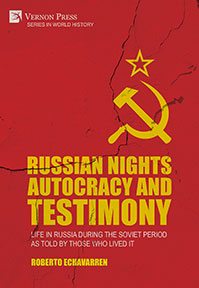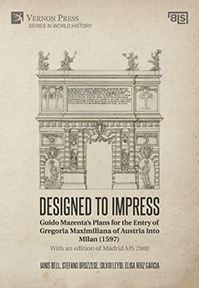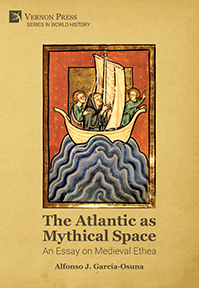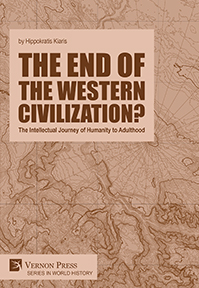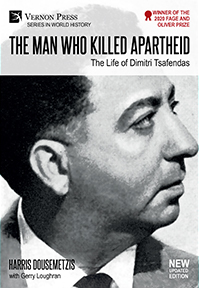Search
Browse
by Publication status
by Subject
Anthropology (26) Art (124) Business and Finance (26) Cognitive Science and Psychology (54) Communication and Journalism (45) Economics (62) Education (66) History (149) Human Geography (22) Interdisciplinary (42) Language and Linguistics (129) Law (16) Music Studies (18) Philosophy (157) Political Science and International Relations (103) Sociology (304) Statistics and Quantitative Methods (20)by Series
Series in Literary Studies (65) Series in Philosophy (59) Series in Education (51) Series in Sociology (42) Series in Politics (32) Series in World History (32) Bridging Languages and Scholarship (31) Series in Language and Linguistics (25) Cognitive Science and Psychology (20) Series in American History (20) Series in Philosophy of Religion (20) Series in Art (19) Critical Perspectives on Social Science (16) Series in Cinema and Culture (16) Curating and Interpreting Culture (15) Series in Critical Media Studies (14) Series on the History of Art (14) Series in Anthropology (13) Series in Business and Finance (13) Economics (13) Series in Music (12) Series in Communication (9) Series in Performing Arts (9) Philosophy of Personalism (8) Series in Law (8) Series in Economic Methodology (7) Series on Climate Change and Society (7) Women's Studies (7) Classics in Economics (6) Series in Economic Development (6) Philosophy of Forgiveness (5) Series in Built Environment (5) Series in Economic History (5) Series in Philosophy of Science (4) Series in Social Equality and Justice (4) Series on the History of Science (4) Serie En Estudios Literarios (3) Serie en Sociología (3) Series in Contemporary History (3) Series in Creative Writing Studies (3) Series in Design (3) The Interdisciplinary Built Environment (3) Serie en Comunicación y Medios (2) Serie en Historia (2) Series in Heritage Studies (2) Series in Innovation Studies (2) Series in Philosophy of Race (2) Serie en Ciencias Políticas (1) Serie en Entorno Construido (1) Serie en Estudios Culturales (1) Serie en Filosofía (1) Serie en Filosofía de la Ciencia (1) Serie en Música (1) Series in Classical Studies (1) Series in Economics of Technological Change (1) Series in Urban Studies (1)by Language
English Spanishby Author
Browsing with filters
Series covering all aspects of World History.
Russian Nights Autocracy and Testimony: Life in Russia during the Soviet Period as Told by Those Who Lived it
June 2023 / ISBN: 978-1-64889-673-6Availability: In stock
426pp. ¦ $83 £67 €75
The details of the Jewish Holocaust have become part of our history through the testimony of those who survived the death camps. The details of Lenin’s and Stalin’s reigns of terror are far less known because they took place behind a wall of secrecy, and survivors have been reluctant to speak about them for fear of retribution. This is an encompassing volume presenting an intense display, as complete as can be, of testimonies, gathered between 2001 and 2005 of actors implicated in different aspects of Russian life roughly through the period 1917-1956. They were people who had lived under the Soviet regime in times of peace and in times of war, from the Red Terror through the Great Terror. One must bear in mind the political and economic conditions in which those lives developed: the one-Party rule placed above both the government and the citizens, the abashment of the division of powers, the suppression of private property and private economic initiative, the political police, and the GULAG. Russian Nights offers a wide and detailed perspective of what we call “the Russian Century”: Lenin’s takeover, the all-powerful Party, the GULAG, and the Second World War.
Designed to Impress: Guido Mazenta’s Plans for the Entry of Gregoria Maximiliana of Austria into Milan (1597)
With an edition of Madrid MS 2908
Janis Bell
et al.
Availability: In stock
281pp. ¦ $75 £68 €73
Soon after celebrating the appointment of Federico Borromeo to Archbishop, the city of Milan began planning elaborate festivities to celebrate the betrothal of Prince Philip, future King of Spain, to the niece of the Holy Roman Emperor, Gregoria Maximiliana. She was scheduled to travel through Milan in 1597 on her journey to Spain. Guido Mazenta, a private citizen, planned for the erection of five triumphal arches in strategic locations throughout the city. This volume includes studies of the author and his previously unrecognized importance in turn-of-the-century Milan, presents an analysis and transcription of his illustrated manuscript for the program (Biblioteca Nacional Ms. 2908), and fully examines the scope and expenses of the festivities in honor of royal visitors in the second half of the sixteenth century. Although Gregoria died before the planned celebration, many of its features were transferred to the entry in 1598 of her sister, Margherita, who married Philip soon after he ascended to the throne as Philip III of Spain. This celebration left a permanent mark on the city of Milan through the construction of the Porta Romana. Scholars of early modern European art and history will find a richness of new archival documentation, particularly those interested in the history of book and art collecting and in economic history. The essays in this volume bring to light the important role of a private citizen whose reputation was later deliberately obscured to cover the ignominy that led to his exile from Milan. Janis Bell and Stefano Bruzzese discuss the author and his activities, Silvio Leydi discusses the many elaborate festivities conducted for royal visitors to the city of Milan during the Hapsburg reign and the expenses involved in hosting their courts, and Elisa Ruiz Garcia presents a detailed examination of the program and the sources used by the author.
The Atlantic as Mythical Space: An Essay on Medieval Ethea
Alfonso J. Garcia-Osuna, Hofstra University
Availability: In stock
298pp. ¦ $59 £44 €50
'The Atlantic as Mythical Space' is a study of medieval culture and its concomitant myths, legends and fantastic narratives as it developed along the European Atlantic seaboard. It is an inclusive study that touches upon early medieval Ireland, the pre-Hispanic Canary Islands, the Iberian Peninsula, courtly-love France and the pagan and early-Christian British Isles. The obvious and consequential ligature that runs throughout the different sections of this text is the Atlantic Ocean, a bewildering expanse of mythical substance that for centuries fueled the imagination of ocean-side peoples. It analyzes how and why myths with the Atlantic as preferential stage are especially relevant in pagan and early-Christian western Europe. It further examines how prescientific societies fashioned an alternate cosmos in the Atlantic where events, beings and places existed in harmony with communal mental structures. It explores why in that contrived geography these societies’ angels and monsters were able to materialize with wonderful profusion; it further analyzes how the ocean became a place where human beings ventured forth searching for explanations for what is essentially unknowable: the origins of the universe and the reason for our existence in it.
The end of the Western Civilization? The Intellectual Journey of Humanity to Adulthood
Hippokratis Kiaris, University of South Carolina
Availability: In stock
118pp. ¦ $50 £40 €47
Civilizations can be perceived as living human beings that are born, mature, age, and ultimately die and disappear, passing their legacy to the future generations. These transitions may be projected to the different stages of cognitive development of children. The Western Civilization, which embodies our current state of cultural advancement from the Classic Greek to the modern period, can be paralleled by the gradual transitions of human beings toward adulthood. From this perspective, the ancient Greek era resembles the toddler years of humanity at which the first “why”-type questions are being asked. The theocratic period that followed until the Renaissance can be seen as our childhood, when people lived their lives under the tight boundaries set by religious authorities. The period spanning from the Enlightenment until almost the end of the 20th century can be considered as our teenage years when people rediscover their past, are liberated from superstition, and set the path forward based on reason by a manner at which the distinction between plausible and feasible is vague. Within this scheme, postmodernism also finds its place in our teenhood. The last few decades, from this perspective, signify our entrance to adulthood at which major questions are considered answered, or at least settled, and the only path forward perceived as feasible is the one that is followed already, a state that is bringing us closer to our intellectual aging and its inevitable death. Some signs of aging-related pathologies are already manifested in today’s technology-intensive society. By identifying our intellectual age and by appreciating our health status, we may be able to proactively delay or even avert our intellectual aging and death.
The Man who Killed Apartheid: The Life of Dimitri Tsafendas
New Updated Edition
Harris Dousemetzis, University of Durham
and Gerry Loughran
Availability: In stock
520pp. [Color] ¦ $89 £74 €84
On 6 September 1966, inside the House of Assembly in Cape Town, Dimitri Tsafendas fatally stabbed Hendrik Verwoerd, South Africa’s Prime Minister and so-called “architect of apartheid.” Tsafendas was immediately arrested, and before the authorities had even questioned him, they declared him a madman without any political motive for the killing. In the Cape Supreme Court, Tsafendas was found unfit to stand trial on the grounds that he suffered from schizophrenia and that he had no political motive for killing Verwoerd. Tsafendas spent the next 28 years in prison, making him the longest-serving prisoner in South African history. For most of his incarceration, he was subjected to cruel and inhumane treatment by the prison authorities. This new updated edition contains all the developments regarding the Tsafendas case after the publication of the book's first edition.

